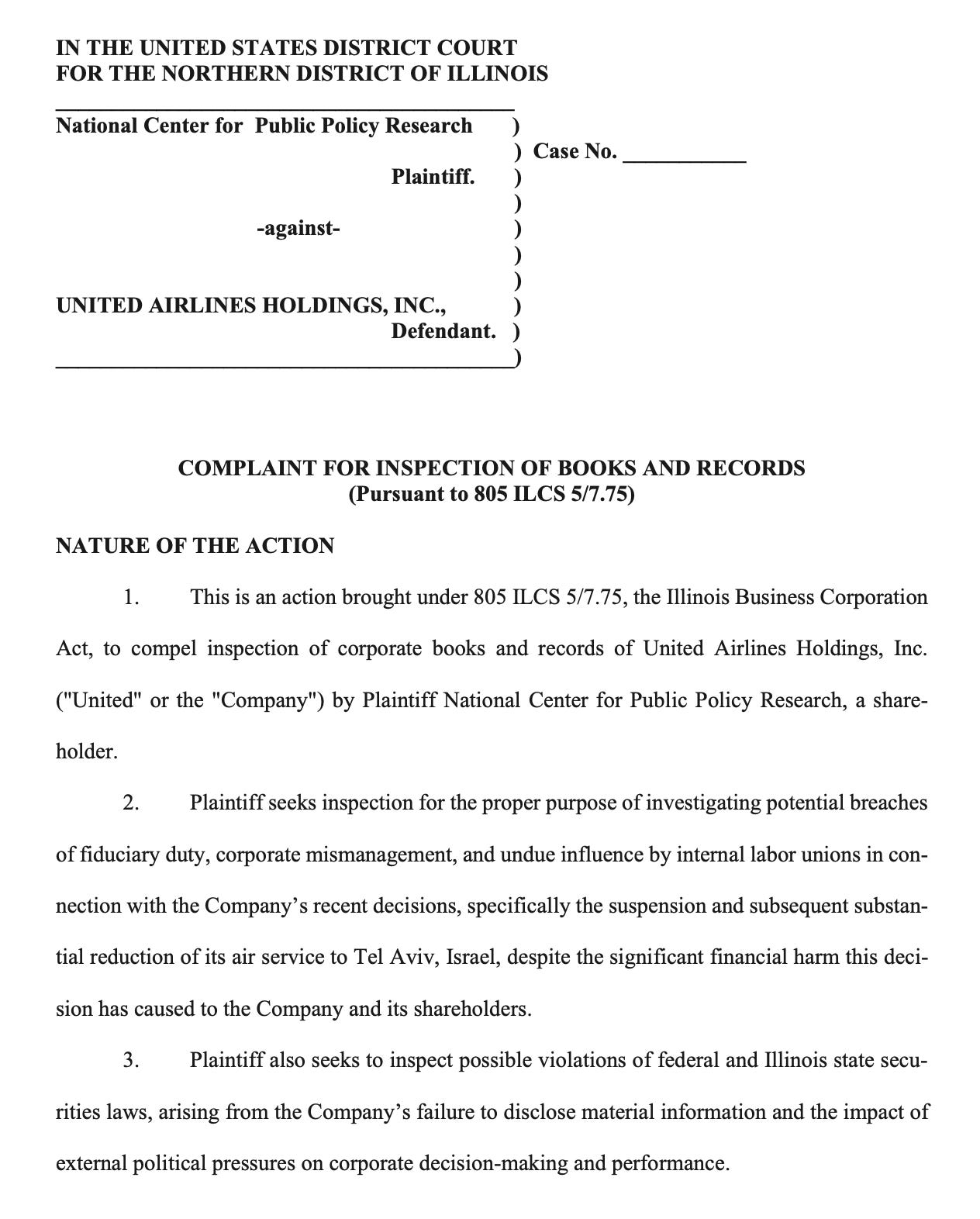NCPPR v. United Airlines: Books and Records Inspections Post-SB 21
Shaming United into Resuming Flights to Israel
United Airlines suspended its Newark-Tel Aviv flights following the Houthi’s May 4 attack on Ben Gurion International Airport (as did other major US carriers). On Friday last week, United announced that it would resume flights between Newark and Tel Aviv on June 6. United is thus restarting service on that route a week earlier than the previously announced June 12 restart date.
Although United attributed the original suspension and the restart decisions to its assessment of operational safety and consultation with the labor unions representing pilots and flight attendants, it’s notable that the National Center for Public Policy Research (NCPPR)—”a self-described conservative think tank in the United States,” per Wikipedia—had filed a lawsuit against United on May 30th, requesting to inspect various United books and records for the “purpose of investigating potential breaches of fiduciary duty, corporate mismanagement, and undue influence by internal labor unions in connection with the Company’s recent decisions, specifically the suspension and subsequent substantial reduction of its air service to Tel Aviv, Israel, despite the significant financial harm this decision has caused to the Company and its shareholders.”1
The right of shareholders of a corporation to inspect the company’s books and records is a long established corporate law principle. According to the Delaware Supreme Court:
[Inspection rights provide] stockholders of Delaware corporations with a “powerful right.” By properly asserting that right …, stockholders are able to obtain information that can be used in a variety of contexts. Stockholders may use information about corporate mismanagement, waste or wrongdoing in several ways. For example, they may: institute derivative litigation; “seek an audience with the board [of directors] to discuss proposed reform or, failing in that, they may prepare a stockholder resolution for the next annual meeting, or mount a proxy fight to elect new directors.”2
Besides providing a timely excuse to blog about the basics of shareholder inspection rights, the United case raises some interesting issues relating to the strategic use of inspection rights to obtain substantive outcomes.
In this post, I discuss why NCPPR used Illinois rather than Delaware law (i.e., post-SB 21 limits on books and records inspections). Future posts will address:
Why they could use Illinois rather than Delaware law (i.e., the books and records inspection exception to the internal affairs doctrine).
Whether they had the requisite proper purpose.
The interplay between books and records inspection litigation and exclusive forum bylaws.
Keep reading with a 7-day free trial
Subscribe to Bainbridge on Corporations to keep reading this post and get 7 days of free access to the full post archives.


